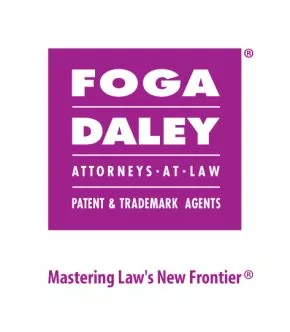Jamaica has recently amended its trademark laws. Dianne Daley, Foga Daley, details the changes that are most impactful on IP practice.
Jamaica's Trade Marks Act and Rules, 2001 were recently updated by a series of significant amendments which include:
- the establishment of a cooling-off period in opposition proceedings,
- increasing the period of non-use for which a party can apply to revoke a registration,
- the preservation of rights of an earlier user, and
- the treatment of trademark applications as property.
Most of these changes were brought about by the Trade Marks (Amendment) Act, 2013, which took effect on August 31, 2013.
The amendments which are considered most impactful on trademark practice in Jamaica are the focus of this report.
Résumé
Dianne Daley, Founding Partner, Foga Daley
Dianne is a founding partner of the boutique law firm of Foga Daley established in 2000, and heads the firm's Intellectual Property (IP) Department. She is a CIDA scholar and has a Bachelor of Laws Honours Degree from the University of the West Indies (UWI) and a Master's Degree in Comparative Law from McGill University specializing in IP and International Copyright.
Her professional memberships include - the International Association of the Advancement of Teaching and Research in Intellectual Property (ATRIP) – the International Trademark Association (INTA) where she is a contributor to the INTA Opposition Guide and a member of the Advertising and Related Rights Sub-Committee of the INTA Public Resources Committee - the Global Advertising Lawyers Alliance (GALA) where she is the exclusive Member for English Commonwealth Caribbean Countries - the Inter-American Association of Intellectual Property (ASIPI) - the Jamaican Bar Association where she chairs the Intellectual Property Committee and - the recently formed Intellectual Property Caribbean Association (IPCA).
She is also Vice Chairman of the Jamaican Copyright Licensing Agency (JAMCOPY) and Company Secretary for the Jamaica Music Society (JAMMS), which are prominent Copyright Management Organizations in Jamaica.
She has taught Intellectual Property Law as an adjunct lecturer for the Master of Laws Programme at UWI and as a guest lecturer at other institutions.
Cooling-off period in Opposition Proceedings
Prior to the amendments, an applicant had a nonextendable period of two months from the date of receipt of a Statement of Opposition within which to file a counterstatement. By virtue of the new Act, parties can now agree to a further two month period, known as the "cooling-off period", for the filing of the counterstatement. The aim is to facilitate settlement discussions.
The Registrar will grant the extension upon an application by either party. The application must be supported by a declaration that the other party has agreed in writing to it and that agreement should be attached to the application.
The cooling-off period may be extended by the Registrar for up to six months after the expiration of the initial two months, upon application by the applicant supported by a declaration that the opponent has agreed to it. If no counterstatement is filed within the period granted the application will be deemed to be withdrawn.
Period of non-use for revocation
A trademark registration was vulnerable to revocation, prior to the amendments, if the mark was not used in Jamaica by the proprietor, or with the proprietor's consent (in respect of the goods/services covered by the registration), within three years of the date of completion of the registration procedure and up to one month before the date of an application for revocation, and there were no proper reasons for non-use.
By virtue of the amendments, a five year litmus test has been introduced. The five years is counted retrospectively from the date of the application for revocation and not as at the date of completion of the registration procedure. The notion of 'bona fide use' of the mark has also been introduced.
More specifically, a trademark registration is now vulnerable to revocation if the mark is not used for bona fide purposes in Jamaica in relation to the goods and services for which it is registered, within five years prior to the date of an application for revocation and there are no proper reasons put forward by the proprietor for its non-use. Additionally, the mark can be revoked if the bona fide use of the mark has been suspended for a continuous period of five years prior to the date of an application for revocation and there are no proper reasons put forward by the proprietor for its disuse.
If use is resumed or commenced after five years, but before the application for revocation was made, the mark would not be revoked. This is the case provided that any resumption or commencement occurring after the five years, but within a three month period before the application, would be disregarded if the proprietor was aware of the application before they commenced or resumed use.
The preservation of rights of an earlier user
The Amendment Act augments the level of protection granted to owners of unregistered marks at common law. A registered proprietor is not entitled to restrain or interfere with any person's use of an unregistered trademark which is identical with or closely resembles their registered trademark in relation to goods/services for which it has been continuously used by the person or a predecessor in title, provided the mark has been used before the registered proprietor's mark has been used in relation to the same goods/services or before the registration of the registered trademark in respect of those goods/ services, whichever is earlier.
Additionally, the registered proprietor cannot object to that person being put on the Register for that unregistered trademark in respect of those goods/services.
Trademark applications as property
Previously, a trademark application was not assignable, as it was not considered property.A trademark application now confers a property right on the applicant. Where there is more than one applicant they are considered joint proprietors, with each one entitled to an equal undivided share in the trademark in the absence of an agreement stating otherwise.
Consequently, a trademark application is transmissible by assignment, will or operation of law in the same way as other personal or moveable property and can be so transmitted either in connection with the goodwill of a business or otherwise. The application may also be the subject of a charge in the same way as a registered trademark and other personal or moveable property.
Consequential amendments
The Security Interests in Personal Property Act, 2013 has made consequential amendments to the Trade Marks Act and Rules, 2001 by removing from the purview of the trademarks office the registration of grants of security interests over registered trademarks to a new registry established by the Security Interests and Personal Property Act.
Other amendments
Generally, amendments to the Rules as regards extensions of time make it possible to obtain an extension of time for certain matters which previously had to be done by a fixed non-extendable deadline. Further, prior to the amendments, only the parties concerned could request an extension, whereas now an extension may also be granted purely on the initiative of the Registrar.
In addition, marks containing protected emblems are now accepted for registration once the applicant has obtained consent from a competent governmental authority.
The amendments also provide an additional ground for revocation, in that marks which are likely to deceive or confuse the public as to the nature, quality or geographical origin of the goods or services for which they are registered are now subject to revocation.
Previously published in The Trademark Lawyer - Issue 2 2015
The content of this article is intended to provide a general guide to the subject matter. Specialist advice should be sought about your specific circumstances.

